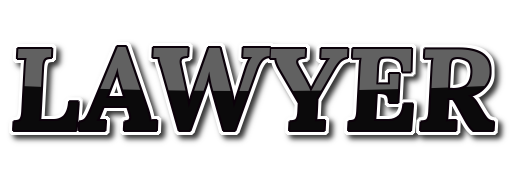Finding a good lawyer who is competent, trustworthy, and compatible with your legal needs can be crucial to the success of your case or legal matter. Here are some steps to help you find a good lawyer:
Identify Your Legal Needs: Before you start searching for a, lawyer, it's essential to clearly understand your legal needs and objectives. Determine the type of legal assistance you require, whether it's drafting a contract, handling a divorce or child custody matter, or representing you in a personal injury lawsuit. Identifying your specific legal needs will help you narrow down your search for a lawyer with the right expertise and experience.
Ask for Recommendations: Seek recommendations from friends, family members, colleagues, or acquaintances who have had positive experiences with lawyers in similar legal matters. Personal recommendations can provide valuable insights into a lawyer's reputation, communication style, and effectiveness in handling cases. Be sure to ask about the strengths and weaknesses of the lawyer recommended and whether they would hire them again.
Research Online: Use online resources to research and gather information about lawyers in your area. Websites such as state bar associations, legal directories, and lawyer referral services can provide listings of qualified attorneys and information about their practice areas, experience, education, and client reviews. Take the time to read client testimonials and reviews to gauge the satisfaction level of past clients.
Check Credentials and Experience: Verify the credentials and experience of potential lawyers by reviewing their professional profiles, including their education, bar admissions, certifications, and disciplinary history. Look for lawyers who have relevant experience and a track record of success in handling cases similar to yours. Consider factors such as years of practice, courtroom experience, and any specialized training or certifications in your area of legal need.
Schedule Consultations: Once you have identified potential candidates, schedule initial consultations with them to discuss your case and evaluate their suitability for representing you. Most lawyers offer free or low-cost initial consultations, during which you can discuss your legal issues, ask questions about the lawyer's experience and approach, and assess your comfort level and rapport with the lawyer. Use the consultation to assess the lawyer's communication skills, responsiveness, and willingness to listen to your concerns.
Ask Relevant Questions: Prepare a list of questions to ask during the initial consultation to help you gather relevant information about the lawyer and their practice. Inquire about the lawyer's experience handling cases similar to yours, their approach to resolving legal issues, their fee structure and billing practices, and their availability to handle your case. Be sure to ask about potential outcomes, risks, and alternative strategies for resolving your legal matter.
Evaluate Communication and Compatibility: Pay attention to the lawyer's communication style, demeanor, and responsiveness during the consultation. Choose a lawyer who communicates clearly, listens attentively to your concerns, and demonstrates empathy and understanding. Additionally, consider whether you feel comfortable and confident in the lawyer's abilities to represent your interests effectively.
Review Fee Arrangements: Discuss fee arrangements and payment terms with the lawyer during the initial consultation to ensure transparency and clarity regarding the costs of legal representation. Inquire about the lawyer's fee structure, billing rates, retainer fees, and any additional costs or expenses associated with your case. Choose a lawyer whose fee arrangements are fair, reasonable, and compatible with your budget and financial circumstances.
Trust Your Instincts: Ultimately, trust your instincts and intuition when selecting a lawyer. Choose a lawyer who inspires confidence, instills trust, and demonstrates a genuine commitment to achieving the best possible outcome for your case. Remember that the attorney-client relationship is based on mutual trust, respect, and collaboration, so it's important to choose a lawyer whom you feel comfortable working with and who shares your goals and values.
By following these steps and conducting thorough research and evaluation, you can increase your chances of finding a good lawyer who is well-equipped to handle your legal needs and provide effective representation and advocacy.



0 Comments